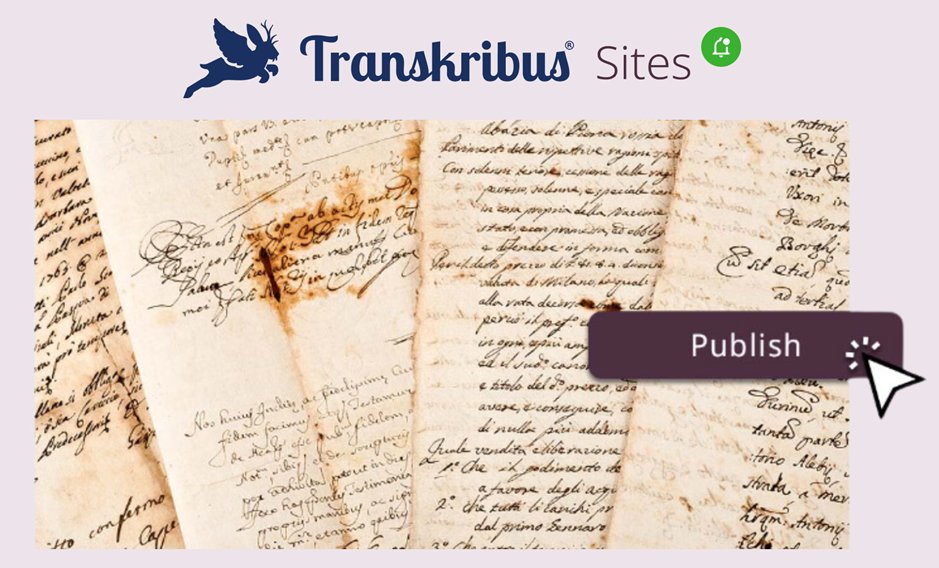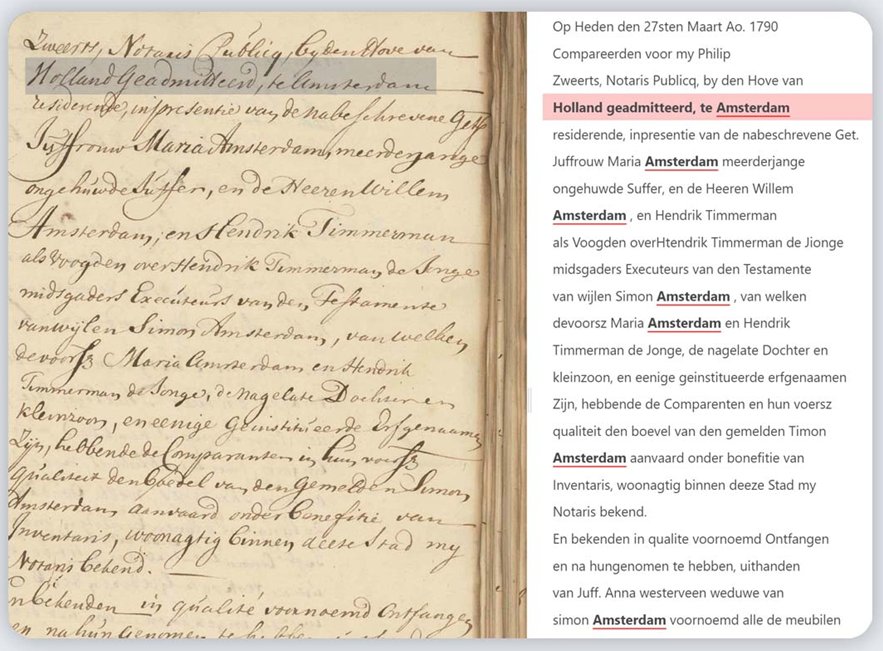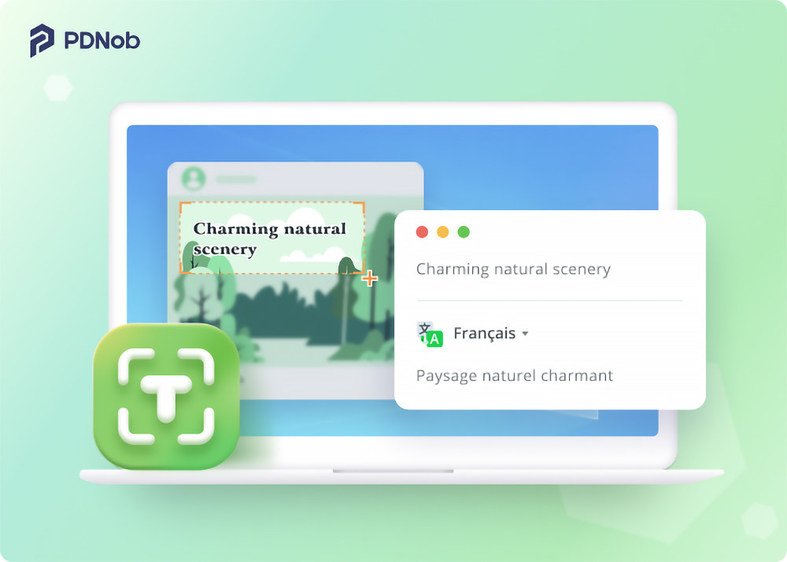Transkribus: AI Program That Translates Handwriting Into Text [Latest!]
In today’s digital age, unlocking the secrets of historical documents has become easier than ever. Transkribus is an AI-powered platform designed to simplify the process of transcribing, digitizing, and searching through historical documents.
Whether you're a researcher, archivist, or history enthusiast, Transkribus offers advanced features that can save you time, improve accuracy, and unlock the potential of centuries-old texts.
Part 1. What Is Transkribus?
Transkribus is a powerful tool that uses AI handwriting recognition to automate the transcription of both handwritten and printed historical documents. The platform is ideal for anyone looking to digitize large volumes of archival material.
It also allows users to train custom AI models for more accurate transcription tailored to the specific handwriting styles in their documents.

Key Features of Transkribus
Transkribus offers a variety of features designed to streamline your work with historical documents. Here's a breakdown of its most important capabilities:
- AI Text Recognition
- Custom AI Training
- Field & Table Recognition
- Powerful Text Editor
- Search & Publishing Tools
Transkribus can automatically recognize both printed and handwritten text in historical documents. This powerful AI ensures fast and accurate transcription, which can be a game-changer for researchers handling large collections.
Need to recognize a specific handwriting style? With Transkribus, you can train your own custom AI model to better recognize and transcribe documents with unique or challenging handwriting.
Transkribus can also process tables and fields within documents, helping users organize and analyze data efficiently, even from historical records.
The built-in text editor allows for seamless corrections, edits, and adjustments. This feature is crucial for fine-tuning transcriptions or editing digitalized historical materials.
Transkribus doesn’t just help with transcription—it also provides advanced search tools.
Use full-text search, fuzzy search, or smart search to find specific information within large datasets. You can even publish your transcribed collections on the web for others to explore.
Part 2. Why Choose Transkribus for Historical Document Research
Historical documents are often challenging to read and digitize. Here’s how Transkribus makes this process easier:
- Speed and Efficiency: Transkribus automates the transcription of documents, saving you countless hours.
- Accuracy: With AI-powered recognition and the ability to train custom models, the transcription accuracy improves over time, especially for unique handwriting styles.
- Collaboration: The platform is designed for collaboration, allowing multiple users to work together on the same project. It’s ideal for academic institutions, libraries, and archives.
Transkribus also supports metadata enrichment. You can tag specific entities, such as dates, names, and places, making your documents even more searchable and usable for research.
Part 3. How Does Transkribus Work?
- Sign Up and Credits
- Upload Your Documents
- Training Your AI Model
- Collaborate and Share
When you first sign up for Transkribus, you receive 100 free credits every month. These credits are used to process documents, particularly for AI-driven text recognition.
Simply upload scanned copies of your historical documents to Transkribus, and let the AI do the hard work of recognizing and transcribing the text.
If you have documents with unique handwriting styles, you can train your own AI model to improve recognition accuracy. This ensures better results over time, especially for specialized documents.
Transkribus allows users to collaborate on projects, share transcribed documents, and even create searchable online collections. It's a fantastic way to make historical research more accessible.

Part 4. Alternative to Transkribus: PDNob Image Translator
While Transkribus is an excellent tool for digitizing and transcribing historical documents, there are other software options available for those looking for similar capabilities. One such alternative is PDNob AI Image Translator, a versatile tool designed to extract and translate text from images, screenshots, PDFs, and more.
Here’s why PDNob Image Translator is a great alternative for document digitization and translation:
Key Features of PDNob Image Translator:
- Image to Text: Extract and copy text from images and scanned documents.
- PDF to Text: Convert non-selectable text in PDFs into editable content.
- Handwriting to Text: Convert handwritten text into machine-readable text, ideal for old handwritten notes.
- Multilingual OCR: Supports OCR in multiple languages, including English, Japanese, Chinese, Spanish, and more.
- Batch OCR: Convert multiple images or PDFs at once for faster processing.
- Offline OCR: Works offline easily, ensuring data security and privacy.

Transkribus vs PDNob Image Translator
When to Choose PDNob Image Translator?
PDNob Free AI Image Translator is ideal for quick and simple OCR tasks, especially for translating and extracting text from a variety of file types. If you need offline functionality and multi-language support, PDNob is a great alternative.
If your focus is on historical document transcription and custom AI models, Transkribus may be a better fit.
Part 5. FAQs about Transkribus
1. What types of documents can I transcribe with Transkribus?
Transkribus supports both printed and handwritten texts, including difficult-to-read historical documents. Whether you’re working with medieval manuscripts or early printed books, Transkribus can help.
2. Is my data safe using Transkribus?
Yes, Transkribus takes privacy and data security seriously. Your documents are stored securely and are only accessible to you or those you choose to share them with.
3. Can I share my transcribed documents on Transkribus?
Absolutely! Transkribus makes it easy to publish your work online through Transkribus Sites, allowing you to share transcribed documents with the world.
Conclusion
Transkribus is a powerful AI tool for digitizing and transcribing historical documents, offering advanced OCR, custom AI training, and multilingual support. It's perfect for researchers and historians looking to streamline their workflow.
For those seeking a versatile, everyday OCR solution, PDNob AI Image Translator is a great alternative.
Speak Your Mind
then write your review
Speak Your Mind
Leave a Comment
Create your review for Tenorshare articles


By Sophie Green
2025-04-22 / Image Translator
Rate now!